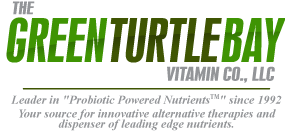Asthma
The following is excerpted with permission from a book written by Dr. Richard Podell, M.D. This information has been helpful to thousands of people in the past, but is not meant to replace your physician. Be sure to check with your physician before undergoing any change in diet. ©1993 The Podell Medical Center, all rights reserved. May not be reproduced in any form without prior written permission. (see Podell Medical Center) http://www.DrPodell.org
ASTHMA
Unlike diabetes or prostate enlargement where nutritional approaches can be the mainstay of treatment, nutritional support in asthma is only one of many factors that affect prevention and treatment. Dramatic improvement may be seen when unrecognized food allergies are discovered, but such cases are the exception. Most asthmatics look for nutrition to foster a gradual and moderate improvement taking place over several months–not, a dramatic “magical” response.
ASTHMA is a reversible spasm of the bronchial breathing tubes that connect the lungs to the throat. Inflammation in the bronchial tubes due to infection, allergy or air pollution is the usual cause of the spasm or irritant. Part of the susceptibility to asthma is inherited (genetic). Asthma affects about 5% of the population and can occur at any age.
DIET/LIFE STYLE
Definitely Effective:
Caffeine provides modest acute asthma relief
Eliminating or reducing dairy products
Eliminating unrecognized food allergies
Recognizing subtle asthma triggers
Possibly Effective:
Salt intake may worsen bronchial spasm.
Alcohol may worsen asthma or improve it.
FOR GREATER DETAIL
Alcohol varies in its effect on individual asthmatics. Alcohol, taken at the same time as a food allergy, makes the food allergy more dangerous. This may be because alcohol (and also aspirin) increase the “leakiness” of the gut, allowing large, undigested food molecules to be absorbed.
Caffeine has a modest, acute anti-asthma effect, probably because of its chemical similarity to the asthma medicine, theophylline.
Eliminating or reducing dairy products: A large minority of people, including asthmatics, form increased mucus when they eat or drink milk products. This can occur whether or not they test allergic to milk using traditional skin or blood tests. Removing dairy can modestly help those asthmatics who have milk-induced mucus. Of course you will need an alternative source for calcium.
Eliminating unrecognized food allergies: Asthmatics can suffer severe asthma from foods such as peanuts, nuts, shrimp, sesame seeds or sulfite additives. Allergy skin and blood tests are reasonably reliable for confirming this type of food allergy, although not for food additives. Most reactions occur because people do not realize they are eating the allergic food. For example, M&M’s plain chocolate candy is often made with peanut protein. Chinese restaurants can easily mix a bit of shrimp in with other meals. Some wines contain sulfites, others do not.
Unrecognized allergies to common foods such as milk, egg and yeast also occur. Acute reactions after eating need not occur because the food is “always in your system.” Traditional allergy tests are less reliable. An elimination diet is the best test, but should only be done under medical supervision.
| CAUTION: Eliminating a food allergen from the diet and then reintroducing it can provoke a more severe asthma attack than the same food might have caused when eaten every day. Therefore, elimination diets for people with asthma should only be done with strict medical supervision. |
Recognizing Subtle Asthma Triggers: Inhalant allergies, sinus infections, esophagal acid reflux, cold/dry-winter air, and emotional distress are important asthma triggers which are often overlooked.
Salt: A low salt diet may reduce bronchial sensitivity and improve asthma status.
SUPPLEMENTS FOR ASTHMA
Definitely Effective:
Ma Huang (Ephedra sinica)–see caution below in section “For Greater Detail”
Probably Effective:
Magnesium 300-600 mg
Tylophora asthmatica (herbal)
Vitamin C 500-2000 mg
Possibly Helpful:
Niacin (vitamin B 3) or niacinamide
N-Acetyl Cysteine 500-1000 mg (for glutathione)
Gingko Biloba
Onion
Quercetin
Vitamin B 6: 50-100 mg
Vitamin B 12
injections 1000 mcg weekly
Not Helpful:
Fish Oil supplements
Primrose Oil supplements
FOR GREATER DETAIL
Fish Oil: Because of its powerful anti-inflammatory effect and benefit found in treating rheumatoid arthritis, fish oil was studied as a possible treatment for asthma. However, a well-designed double-blind study failed to show benefit.
Gingko biloba: Known best for it’s “anti-senility” effects, two small controlled studies show modest benefit.
Ma Huang: This plant is a source of the asthma medicine, ephedrine, a close-cousin of theophylline, a widely used asthma medicine. However, I’d rather you use the prescription medicines theophylline or ephedrine since the potency of their doses are more consistent from batch to batch. This is important because too much Ma Huang (ephedrine) or theophylline can have serious side-effects –including nervousness and irregular heart beat.
Magnesium: Magnesium definitely helps an acute asthma attack when given intravenously. Most nutrition-oriented physicians believe oral magnesium can help chronic asthma. As of this writing, there have not been any controlled studies to prove this belief as of this writing.
N-Acetyl Cysteine: This nutrient is converted in the body to glutathione. It has definite mucous-thinning and anti-oxidant effects. As of this writing, it has not been tested as a treatment for asthma.
Niacin: Niacin (vitamin B 3) or niacinamide, given intravenously, may relieve wheezing within a few minutes. There is little information about the effects of chronic treatment.
Onion: As of this writing there have been no studies of using onion to treat asthma in humans. In guinea pigs, onion can prevent certain forms of experimental asthma.
Primrose Oil: Like fish oil, the GLA is primrose and borage oil has anti-inflammatory effects. However, primrose oil supplements do not appear to help asthma.
Quercetin: An important bioflavonoid, quercetin is biochemically similar to the anti-asthma drug Intal (cromolyn). In test tube experiments quercetin can prevent mast cells from releasing histamine, a chemical that potentiates allergic reactions. As of this writing Quercetin has not been tested as a treatment for asthma.
Tylophora asthmatica: This Indian herb has been used to treat asthma in the Ayedurvic tradition for thousands of years. Controlled studies suggest it may be about as effective as theophylline. No studies, as of this writing, have been done to see if this herbal treatment provides any advantage over modern medicines.
Vitamin C: one of the lung’s most important anti-oxidant defenses. High doses given to asthmatics before an acute exposure to irritants or allergens definitely reduce the severity of reaction. However, few studies have tested whether daily vitamin C supplements would have a continuing benefit for people with chronic asthma. There is little likelihood of harm. Nutrition-oriented physicians routinely recommend it.
Vitamin B 6 (pyridoxine): Taken at doses of 50 to 200 mg daily, several small, poorly controlled studies seemed to show benefit from vitamin B 6 in asthma. However, one large double-blind study showed no benefit.
Vitamin B 12: Given weekly 1000 mcg vitamin B 12 injections have been reported to help asthma, especially in children. However, these results are inconclusive since there were no placebo treatments for comparison. Vitamin B 12 does protect people who are allergic to sulfites, but only if given in high doses shortly before the sulfite exposure.
Recommendation:
-
Consult an allergist to determine your inhalant and food allergies. Keep a food diary to identify suspect foods. Consider an elimination diet, but only if well-supervised and if you are prepared to treat an acute asthma reaction if you reintroduce suspect foods.
- Take an insurance formula multi-vitamin/mineral.
Add: Vitamin C (slow-release form) 500 mg to 1000 mg twice daily
Magnesium in divided doses to give 300-600 mg daily N-Acetyl Cysteine 500 mg once or twice daily
Consider also: A six-week trial of 1000 mcg vitamin B12 injectionsin children.
This information has been helpful to thousands of people in the past, but is not meant to replace your physician. Be sure to check with your physician before undergoing any change in diet.
The Green Turtle Bay recommends taking the anti-oxidants PowerVites® and PowerMate® and the omega blendSignal369™.




